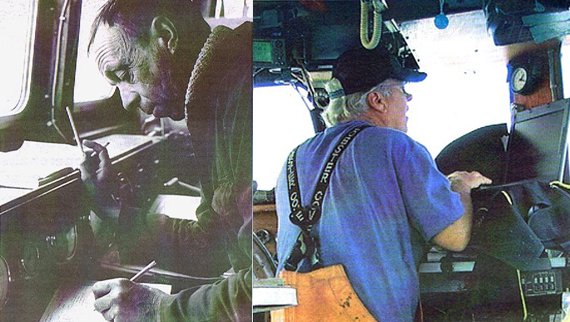The fishing logbook remains, outside Europe, often in paper form.
The transition from paper to electronic logbook should ideally follow a process: the ERS system should be composed of a part on land and a part installed on board the fishing ship (hardware + software). The elements on land should be integrated into the existing Fishery Monitoring Centre without parasiting it.
SYSTEMS ON LAND :
Connected servers: this should ensure the collection, backup, distribution, making available and analysis of the JBE data transmitted by ships.
THE SYSTEM ON BOARD :
Tool for recording the catches on board fishing ships. It will stand on a modern platform using the latest technologies, for example the smartphone.
The two above components will integrate functionalities which will reinforce the surveillance abilities and management of fishing and increase the efficiency of analysis of catches.
WHAT ABOUT THE ERS TOMORROW !?
Each European country has managed the instalment of ERS and used European subsidies, each after its own fashion...
Certain ones have mandated a national operator who has developed ERS and then made it available to national fishermen free of charge.
Others have created a schedule of conditions and invited interested companies to develop. Companies could then sell licences to fishermen to offset the development cost.
Despite a common European basis for schedules of conditions, the result on a European scale was/is somewhat cacophonic.
It has therefore been necessary to create a nodal centre in Brussels which receives XML files from the different member states and gives them uniformity.
Heedful of these earlier teething problems, the European Commission has thought up a new “language of exchange” baptised FLUX (Fisheries Language for Universal Exchange).
FLUX is based on web technologies. Schematically, it consists of
![]() a “business” layer with standardised electronic forms to be filled out according to type of business
a “business” layer with standardised electronic forms to be filled out according to type of business
![]() a “transport” layer which gives an “envelope for expedition”
a “transport” layer which gives an “envelope for expedition”
![]() a DEH (Data Exchange Highway) “postman” distributing the envelopes to addressees.
a DEH (Data Exchange Highway) “postman” distributing the envelopes to addressees.
FLUX is in test and implementation phases in certain European countries and will also be adopted by the RFMOs.

